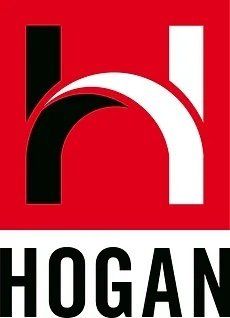New Paragraph
Coaching for Career Transitions, Career Re-design, and Workplace Stress
Career and Workplace satisfaction greatly affects our overall happiness and psychological well-being. Yet, many people experience stress and burnout at work, often related to complex workplace dynamics, organizational culture and practices, or imposter syndrome. Others may be navigating a career transition or redesign, and seek a thinking partner or coach to help manage this journey. As an organizational leadership psychologist and counselor who has navigated her own career redesign, Dr. Abigail Eaves is excited to partner with others to optimize their experience of life at work.
Career Coaching or Counseling sessions are used to address:
- Toxic Workplace Dynamics
- Stress and Work/Life Harmony
- Career Transitions and Re-Design
- Imposter Syndrome
- Anxiety & Depression
- Workplace Trauma (including identity-based discrimination)
- Power Orientation/Motivation
Individual Leadership Coaching
We use empirically validated coaching techniques based on cognitive, social, and behavioral psychology, adult development, and neuroscience to help executive leaders and managers achieve the following results:
- Strengthen Decision-Making: Assess risks, consider alternatives, and evaluate outcomes/impact.
- Respond Effectively to Change: Develop and communicate a clear vision for change, mobilize support across the organization, foster a growth mindset, and manage ambiguity.
- Clarify Leadership Identity: Identify purpose, values, and leadership style, and build confidence and executive presence.
- Resolve Conflict: Develop perspective-taking skills, emotional intelligence, and negotiation skills.
- Foster Effective Communication: Articulate vision, provide constructive feedback, and build strong relationships with stakeholders.
- Improve Leadership Resilience: Identify signs of stress, maintain work-life harmony, and prevent burnout by developing stress management and resilience practices.
- Build High-Performing Teams: Foster collaboration, trust, and accountability among team members.
- Achieve Organizational Goals: Align individual and team goals with the broader strategic objectives of the organization.
- Navigate Career Transitions: Manage transitions from promotions or role changes to full career re-design.
Hogan Assessments
We utilize the Hogan Assessments to craft a unique profile of an individual's strengths, de-railers, and values. For more than 30 years, Hogan has been one of the most widely used tools in personality assessment and leadership development among Fortune 500 companies. Assessments include:
- The Hogan Personality Inventory (HPI),
- The Hogan Development Survey (HDS),
- The Hogan Motives, Values, Preferences Inventory (MVPI)
Hogan utilizes rigorous and continuous processes to ensure the validity and reliability of their assessment tools. Assessment results are used to build a variety of reports such as the:
- Leadership Forecast Series
- Insight Series
- Coaching Report
- EQ (Emotional Intelligence) Report
Hogan assessments can be used on their own with a one-time coaching session or added to our coaching packages for more in-depth development work.
Coaching for Career Transitions, Career Re-design, and Workplace Stress
Career and Workplace satisfaction greatly affects our overall happiness and psychological well-being. Yet, many people experience stress and burnout at work, often related to complex workplace dynamics, organizational culture and practices, or imposter syndrome. Others may be navigating a career transition or redesign, and seek a thinking partner or coach to help manage this journey. As an organizational leadership psychologist and counselor who has navigated her own career redesign, Dr. Abigail Eaves is excited to partner with others to optimize their experience of life at work.
Career Coaching or Counseling sessions are used to address:
- Toxic Workplace Dynamics
- Stress and Work/Life Harmony
- Career Transitions and Re-Design
- Imposter Syndrome
- Anxiety & Depression
- Workplace Trauma (including identity-based discrimination)
- Power Orientation/Motivation
